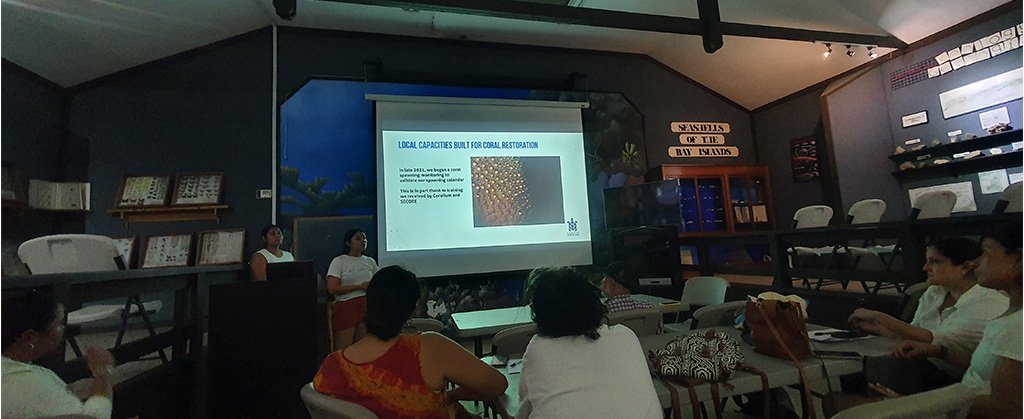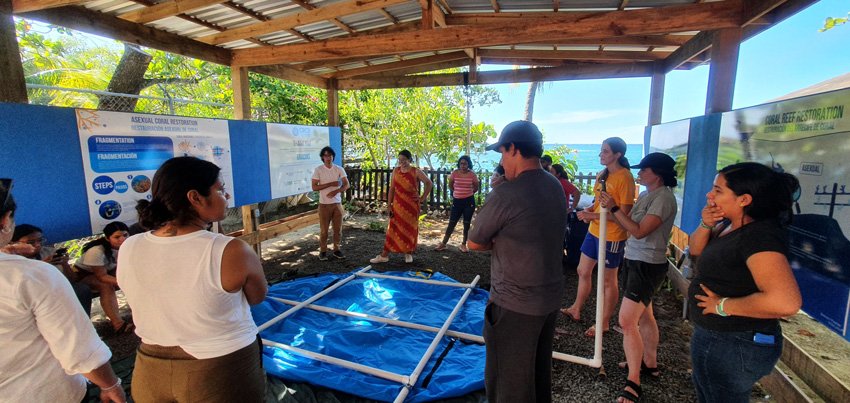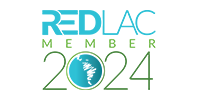Coral Restoration through Assisted Fertilization and Microfragmentation workshop

Damaris Dueñas, research from the Roatan Marine Park, gives a talk on coral restoration through assisted fertilization and larval propagation. Photo: Zara Guifarro/MAR Fund
The restoration of reefs through assisted fertilization and larval propagation is an innovative tool used to restore large, degraded areas throughout the Caribbean, so with the aim of building capacities in the use of this technique, from September 12 to 17 the workshop “Assisted Reproduction and Microfragmentation” was held in Roatán, Honduras.
The workshop was organized by the Roatán Marine Park (RMP) in collaboration with SECORE International and the German Cooperation (GIZ). The instructors were scientists from the RMP, SECORE International and the California Academy of Sciences.
A total of 30 people participated in this activity, which is part of the project “Application of innovative tools for the conservation and restoration of coral reefs in Honduras”, who represented different organizations such as RMP, Bay Islands Conservation Association (BICA), Fundación Cayos Cochinos and Tela Marine Research Center.
There were also representatives of different government authorities such as the Ministry of Energy, Natural Resources, Environment and Mines (SERNA), the National Institute for Forest Conservation and Development, Protected Areas and Wildlife (ICF) and the General Directorate of the Merchant Marine. Even the Vice Minister of SERNA, Jorge Salaverri, actively participated to encourage the use of different coral restoration techniques to improve the conservation of coral reefs in Honduras.
All attendees of this workshop were trained in coral spawning monitoring, gamete collection, assisted fertilization and larval propagation.

Participantes learned to build the Coral Rearing In-Situ Basin (CRIB), where the coral larvae will grow before being outplanted. Photo: Zara Guifarro/MAR Fund
Zara Guifarro, technical assistant of the Reef Rescue Initiative (RRI) of the Mesoamerican Reef Fund (MAR Fund), was invited on behalf of MAR Fund, as part of the collaboration agreement with GIZ through the Biodiversity and Business Program in Central America and the Dominican Republic.

Participants conduct assisted fertilization at the Roatan Marine Park facilities. Photo: Zara Guifarro/MAR Fund
Zara, participated in the coral spawning and gamete collection monitoring activities, offered a presentation of the RRI, whose key strategies include the development of technical and scientific capacities in the conservation and restoration of coral reefs in the four countries of the Mesoamerican Reef region.




